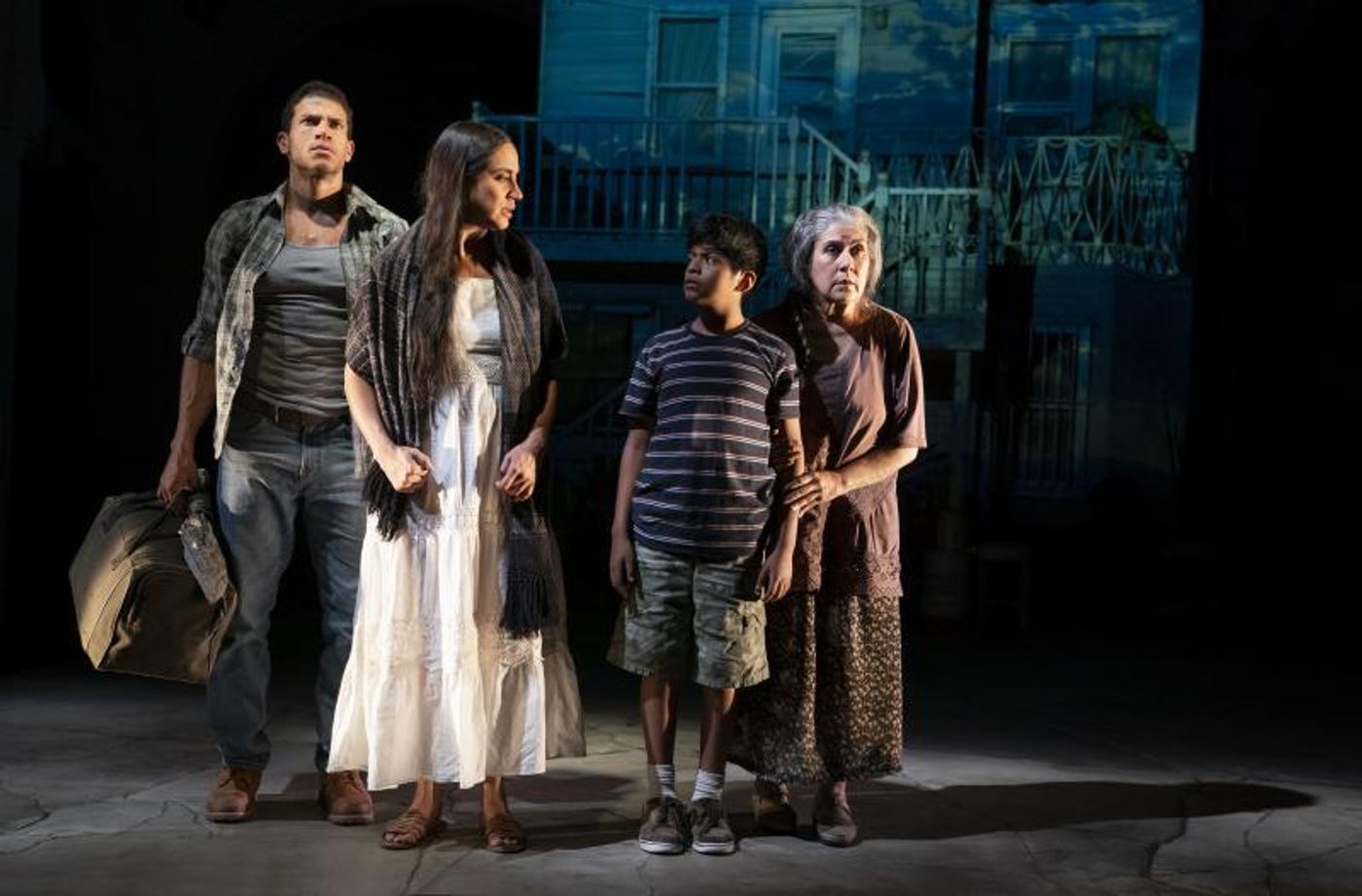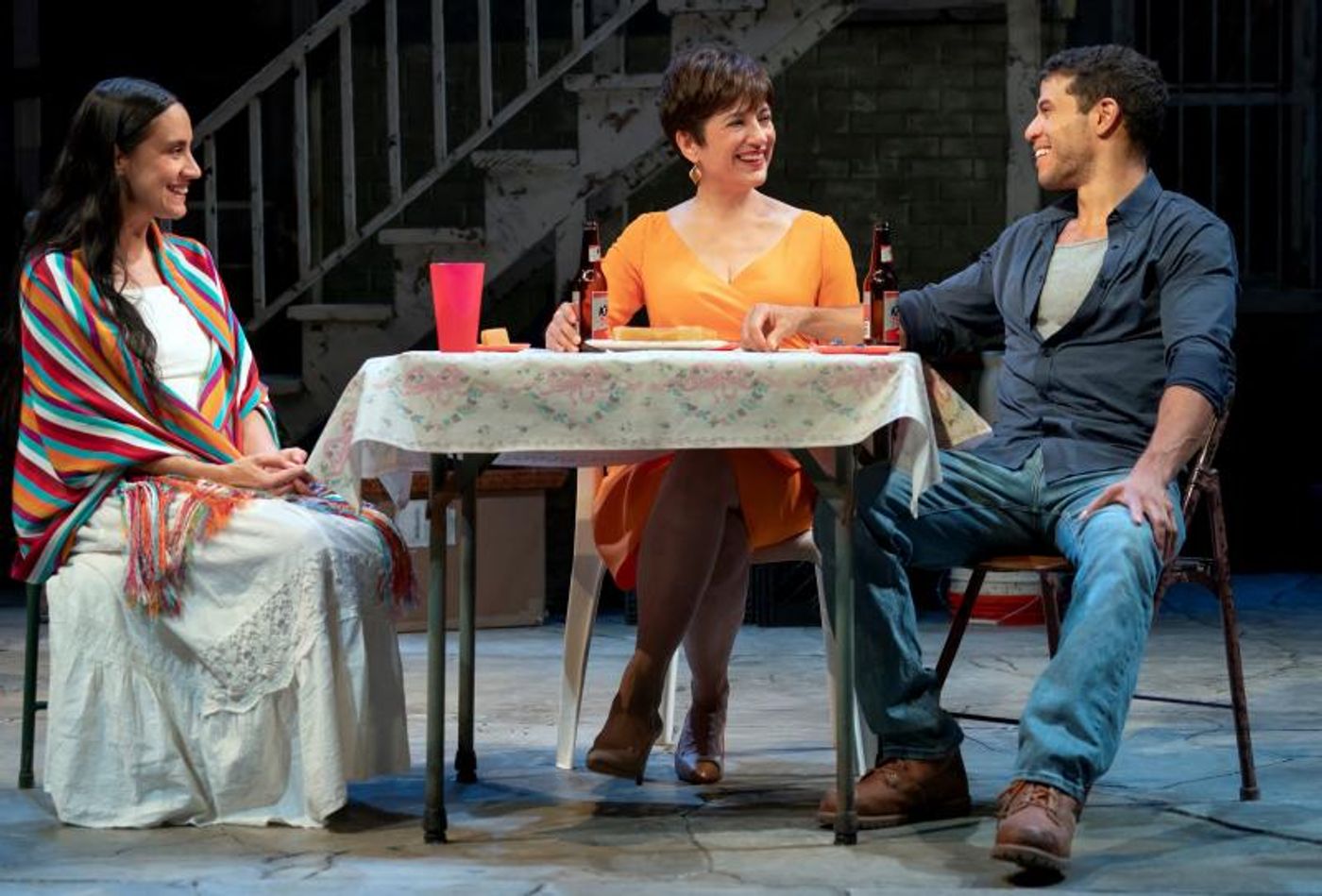Review: Luis Alfaro's MOJADA Adapts An Ancient Text Into A Contemporary Refugee Story
The last time a collaboration between MacArthur Award honoree playwright Luis Alfaro and director Chay Yew played The Public Theater, OEDIPUS EL REY turned Sophocles' ancient text about the inescapability of fate into a contemporary commentary on how American society creates seemingly inescapable fates for young men from underserved communities that repeatedly send them into incarceration.

Benjamin Luis McCracken and Socorro Santiago
(Photo: Joan Marcus)
In Alfaro's take on Euripides' MEDEA, titled Mojada, the varying attitudes towards assimilation within a family of Mexican refugees who lack documentation lead to a devastating conflict.
The title, translated from Spanish, refers to wetness, which is exemplified in forms such as jugs of water left by humanitarians for those attempting to escape hardship, or as a racial slur directed at those crossing the southern border to seek asylum in America.
Previous productions have set the play in Los Angeles, but at The Public, Corona, Queens is the locale where Medea (a thoroughly engrossing portrayal by Sabina Zúñiga Varela), her romantic partner Jason (Alex Hernandez) and their son Acan (Benjamin Luis McCracken) live with grandmotherly Tita (Socorro Santiago), who survived the journey with them.
Their home is provided by Jason's chic, savvy employer, Pilar (Ada Maris), a Cuban immigrant and successful businesswoman who is happy to introduce the handsome, muscular young fellow to the advantages that come with her American citizenship.
While Medea tries to instill in her son an appreciation for ways of their homeland, such as the prayer ritual performed with banana leaves that opens the play, Jason encourages Acan to start calling him dad instead of papi and to wear an American soccer jersey instead of his Mexican futbol one. It's the difference between regarding this nation of immigrants as a melting pot where everyone assumes a new culture or a beautiful mosaic, where each individual culture is encouraged to shine.

and Alex Hernandez (Photo: Joan Marcus)
Advised to stay inconspicuous, Medea, an expert seamstress, earns money making dresses for women in the neighborhood. Her most enthusiastic customer is Luisa (Vanessa Aspillaga) a Puerto Rican woman with her own business selling churros on the street. An underlying theme of MOJADA is the difference in American experiences for those of different Latinx heritages.
The play is particularly effective, and Sabina Zúñiga Varela is especially gripping, when Medea details in flashback monologues the abuse she suffered in Mexico and the dangers and indignities she endured to bring her to Queens.
Those familiar with the source play know where this is going, put perhaps the violence of the story's conclusion is a bit more symbolic here, contrasting the immigrant dream of making a better future for your children with trying to avoid having them seduced by material success and acquiring a cold heart that lacks empathy for the less well-off. In any case, the extraordinary relevance of Mojada is sadly undeniable.
Reader Reviews

Powered by
|
Videos

